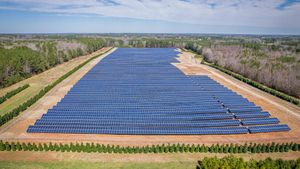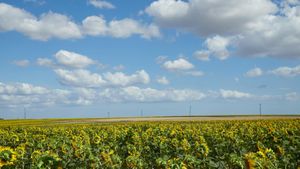The Democratic Republic of the Congo (DRC) is once again caught in the throes of conflict as the Rwandan-backed March 23 Movement (M23) rebel group has recaptured Goma, the capital of North Kivu province. This development has escalated fears of renewed regional war, evocative of past conflicts which saw millions of lives lost. The M23's capture of Goma, following similar takes during its previous uprising twelve years ago, signals not just tactical gains but potential shifts in regional political dynamics.
The M23 rebels, alongside roughly 4,000 Rwandan troops, have triggered what many experts believe could lead to broader regional instability. Indeed, the DRC is situated among several countries with vested interests—including Rwanda and Uganda—heightening the risk of involvement from their militaries. “What happens in Congo doesn’t stay in Congo,” comments Jason Stearns, former U.N. investigator and current academic. “The potential for wider conflict is acute, driven by both historical grievances and immediate territorial ambitions.”
The originally political motivations of the M23 have transformed over the years, now encompassing territorial control and resource exploitation. By securing Goma, the rebels seek to not only control the city but also to consolidate power over mineral-rich regions nearby. Reports indicate M23 has generated enormous revenue through taxes collected on the production and transport of resources like coltan, cobalt, and tantalum—vital for modern technology. Allegations suggest Rwanda has profited significantly from this illicit trade, enhancing their regional power.
“M23 is currently positioned to dictate terms within Goma, establishing both military and civilian governance,” states Corneille Nangaa, head of the Alliance Fleuve Congo (AFC), formed by M23 and other groups. “We are here to stay.” Such statements indicate the rebels’ plans to replicate administrative frameworks they’ve established elsewhere, which could create significant challenges for the Congolese government.
Compounding the crisis is the humanitarian toll. An estimated 500,000 people have been displaced since January, with hospitals overwhelmed by civilian casualties. The streets of Goma are littered with evidence of the chaos, forcing numerous foreign nationals to evacuate. Local witnesses describe horrifying scenes of bodies on the streets and rampant looting as security forces react sluggishly to the onslaught. “Our soldiers are surrendering,” laments human rights activist Sifa Maombi. “It hurts to see our country under siege.”
Internationally, responses have been varied. Protests erupted across Kinshasa as citizens demanded accountability from the global community for what they perceive as complicity or negligence toward Rwanda’s role. Rioters targeted embassies—including those of the U.S., France, and Belgium—reflecting frustrations at perceived indifference. The U.N. has called for the immediate withdrawal of foreign troops and urged peace talks to lift the loosely held ceasefire.
Rwandan President Paul Kagame, embroiled in accusations of underwriting the M23's resurgence, finds himself at the center of fierce contention. Several nations have condemned Rwanda’s interventions, previously threatening sanctions, yet the dynamics of foreign aid favor the current Rwandan administration. “Rwanda's positioning as a peacekeeping partner complicates matters substantially compared to past interventions,” remarked Steven Plocher, geopolitical analyst.
Efforts to mediate peace have failed to materialize as the DRC government steadfastly refuses direct negotiations with M23, branding them as terrorists. Congolese President Félix Tshisekedi has encouraged public mobilization to confront the perceived aggressors, even likening Kagame to historical figures of oppression. The stakes are high, with public sentiment swaying significantly against foreign interventions, rallying calls for armed resistance creating the imaginary of national unity against external foes.
Meanwhile, regional allies of the DRC, particularly Burundi, have mobilized forces to counter the M23 advance. Thousands of Burundian soldiers are reported to be aiding the Congolese military against the M23. “Burundi's involvement signifies the entwinement of various ethnic conflicts, and the risk of internal fracture looms,” notes Dr. Josaphat Musamba, who studies regional conflict dynamics.
With global geopolitics at play, international observers are aware of the potential ramifications if the conflict escalates. The precarious balance of alliances and enmities among Congo, Rwanda, Uganda, and Burundi could spell disaster if proactive measures aren’t taken swiftly. Leading nations have convened to discuss assistance and conflict management, yet time is of the essence as reports of fresh violence continue to emerge.
For now, Goma grapples with chaos, uncertainty, and violence. Amidst fears of regional escalation, communities are left to wonder what the future holds as they navigate the horrors of conflict, loss, and flickers of hope for peace.



